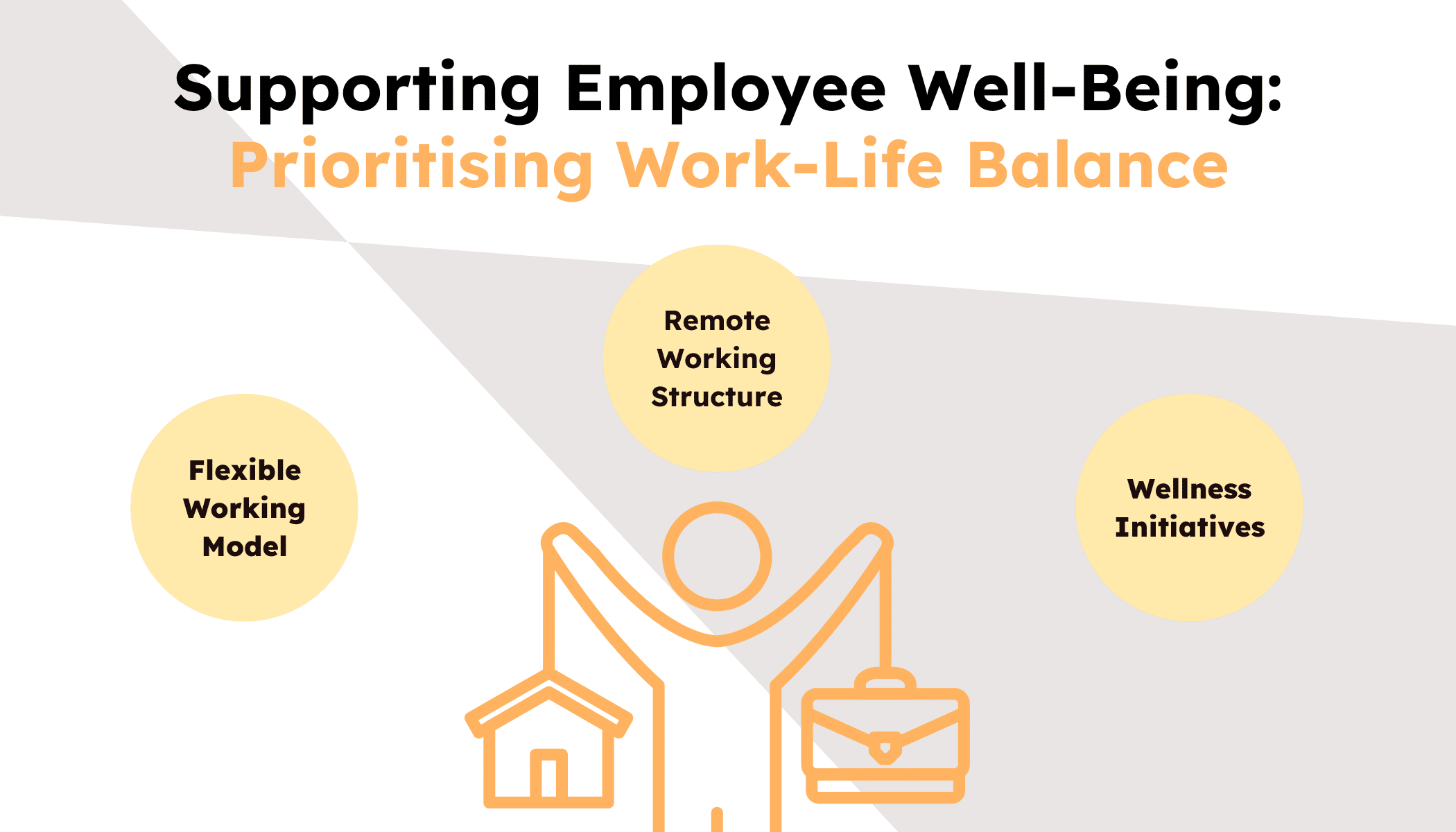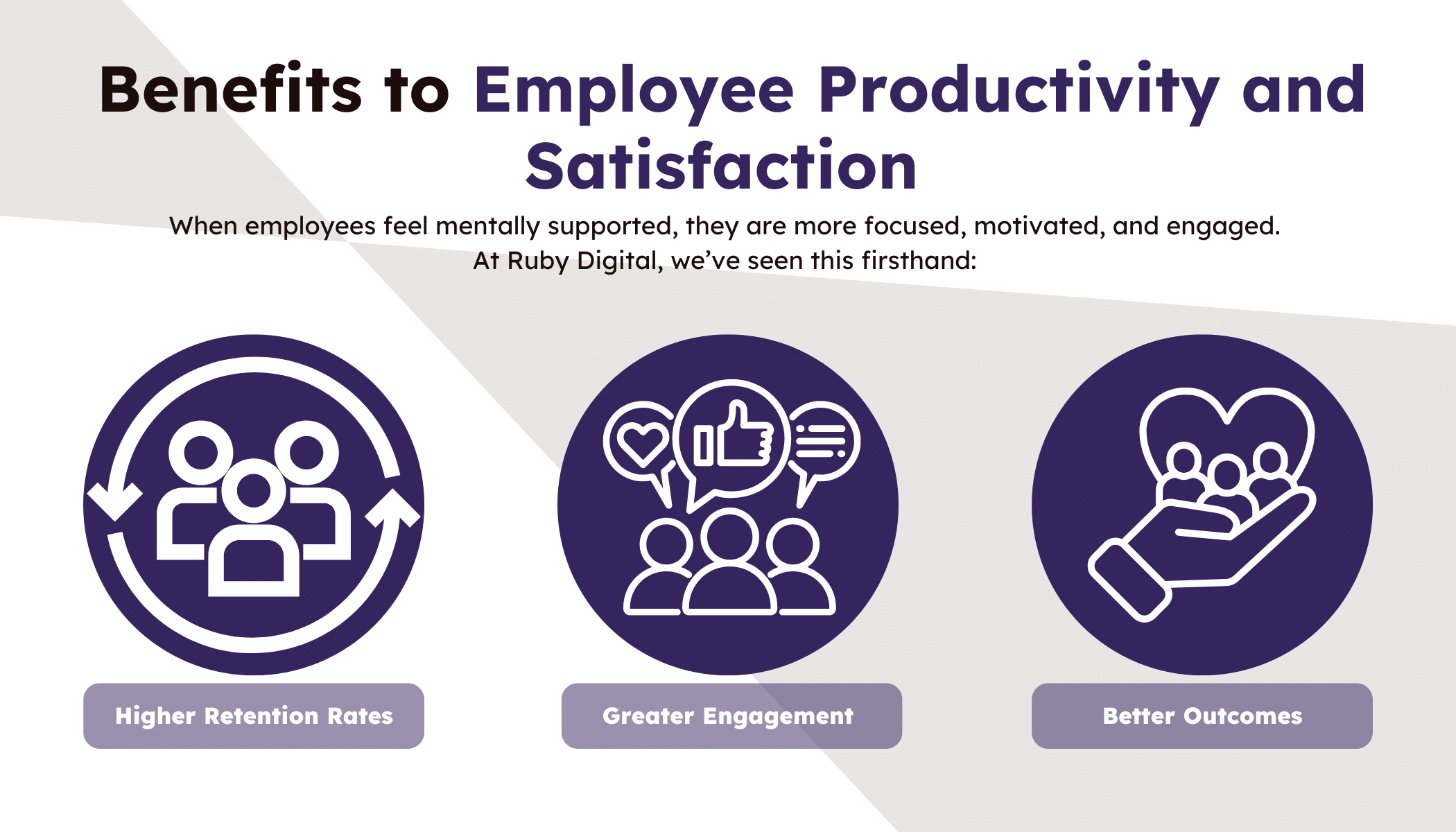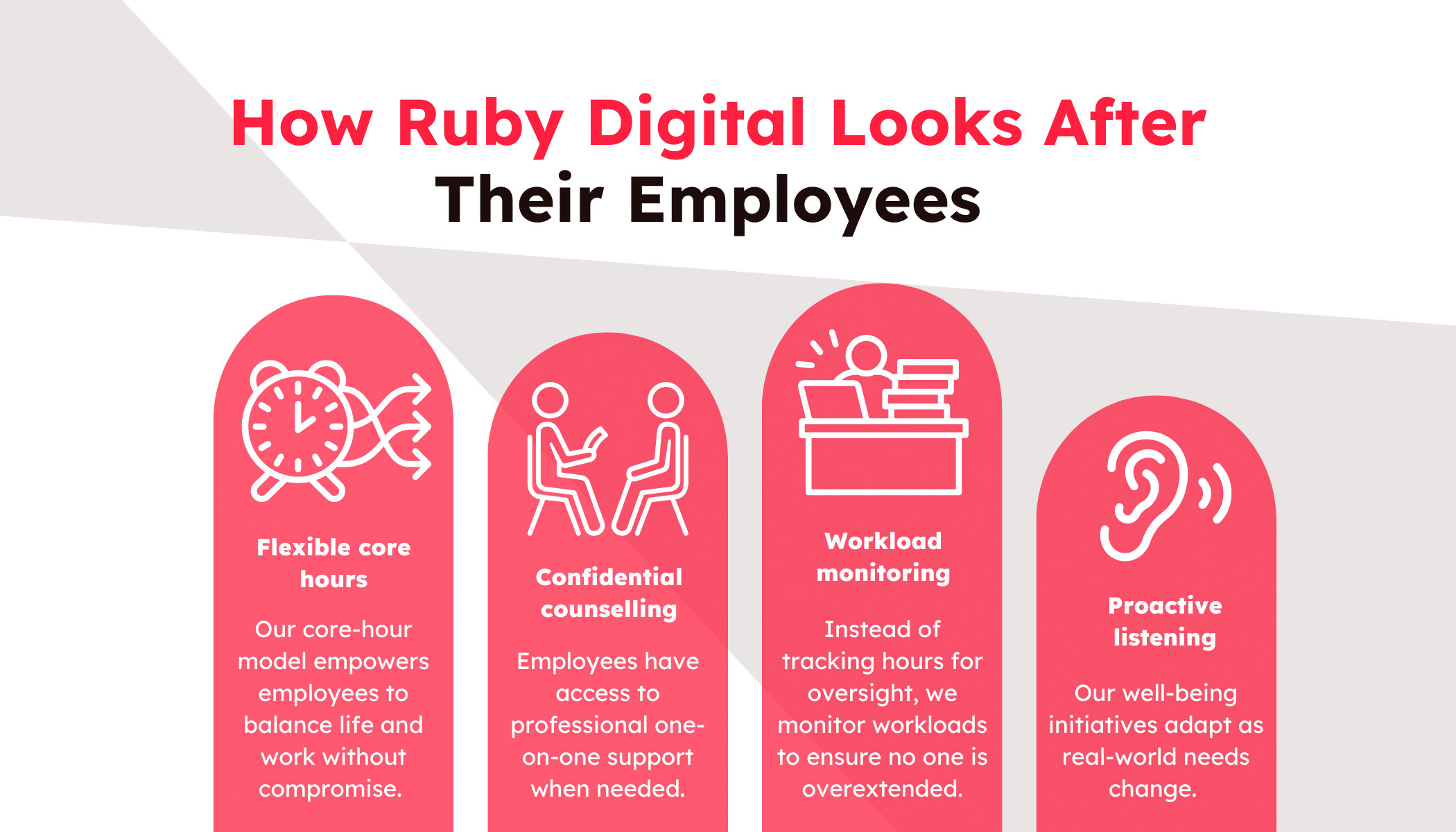In today’s evolving work environment, employee well-being and mental health have rightfully taken centre stage. Businesses are recognising that success is not just about performance metrics, but about the people behind them. A thriving workforce is one where individuals feel supported, valued, and mentally healthy.
With World Mental Health Month in October, it’s the perfect opportunity for companies to reflect on how they support their people. At Ruby Digital, we see this as more than a symbolic month – it’s a reminder to constantly evaluate and improve our approach to managing mental health at work.
For us, mental health is not an optional benefit. It’s essential. A healthy team is more engaged, resilient, and able to contribute meaningfully to shared success. Our approach is holistic, proactive, and centred on people, encouraging balance, openness, and growth.
Prioritising Work-Life Balance
A sustainable work-life balance is one of the cornerstones of maintaining mental health at work. At Ruby Digital, we’ve embraced a flexible working model that helps employees balance personal and professional commitments without sacrificing career growth.
Our core hours are from 9 am to 3 pm, during which team members are expected to be online and available. Outside of these hours, employees have the freedom to adjust their schedules, ensuring they can manage personal responsibilities while completing their 8–9-hour workday. We understand that life doesn’t always follow a set schedule, so team members can step out for errands or family commitments when needed, without added stress. This approach helps maintain both connection and flexibility within the team.
Remote working plays a central role, too. For us, it’s not just a logistical decision – it’s part of our broader goal to promote autonomy and reduce unnecessary pressure. We encourage employees to take breaks, step away from their screens, and recharge when needed.
We’ve also introduced wellness initiatives designed to support both mental and physical health. These include meditation sessions, fitness challenges, mental health webinars, and access to a wellness app. For working parents, flexibility within hours makes it easier to juggle family responsibilities alongside their careers.
Curious about how we maintain a strong culture in a remote-first environment? Explore our blog on remote working and building culture.

Fostering an Open, Supportive Environment
One of the most effective ways to improve mental health at work is by creating a culture of open dialogue. We actively foster an environment where employees feel safe to discuss mental health without fear of judgment or stigma.
We listen. And we act. Feedback is not something we file away, it directly shapes our well-being initiatives. Whether through one-on-one check-ins, team surveys, or casual conversations, we make sure employee voices guide our strategy.
Support doesn’t only come from leadership. Peer-to-peer initiatives and informal check-ins are encouraged, helping team members feel seen and supported. Sometimes, knowing that someone is available for a quick chat can make all the difference.
By normalising conversations around mental health, we work to break down barriers and reduce stigma. This is not just a policy, but it’s part of who we are.
Learn more about how purpose impacts well-being in our blog on purpose-driven work and company culture.
Benefits to Employee Productivity and Satisfaction
There’s a strong connection between employee well-being and business performance. When employees feel mentally supported, they are more focused, motivated, and engaged. At Ruby Digital, we’ve seen this firsthand:
- Higher retention rates – People stay longer when they feel valued and supported.
- Greater engagement – Mentally healthy teams are more motivated and collaborative.
- Better outcomes – A positive work environment translates into high-quality client work and stronger results.
Investing in mental health is not just a moral choice – it’s also a business strategy that drives long-term growth.

How Ruby Digital Looks After Their Employees
Our approach to well-being is comprehensive and practical:
- Flexible core hours: From doctor’s appointments to school runs, our 9 am – 3 pm model empowers employees to balance life and work without compromise.
- Confidential counselling: Employees have access to professional one-on-one support when needed, providing a safe space to work through personal challenges.
- Workload monitoring: Instead of tracking hours for oversight, we monitor workloads to ensure no one is overextended. If burnout risks arise, we step in – whether that means redistributing tasks or adjusting timelines.
- Proactive listening: Feedback is actioned, not ignored. Our well-being initiatives adapt as real-world needs change.
These measures help our employees know they’re not just heard but actively supported.

Looking Forward
Our commitment aligns with the Thriving at Work mental health standards, which encourage employers to take deliberate steps toward healthier workplaces. For Ruby Digital, this means ongoing investment in:
- Flexibility – Giving employees control over how they work.
- Open communication – Normalising conversations about well-being.
- Meaningful support – Providing real resources, not just box-ticking initiatives.
Supporting mental health is more than an ethical responsibility – it’s a driver of stronger performance, better collaboration, and long-term success.
A Call to Action for Businesses
We believe every company should ask itself the hard questions:
- Are your employees truly supported?
- Do you know how to improve mental health at work in ways that make a real difference?
- Could your policies be more intentional, proactive, and people-first?
Now is the time to answer honestly. World Mental Health Month is not just a date on the calendar but an opportunity to commit to building workplaces where people thrive, both personally and professionally.
At Ruby Digital, we’ll continue to refine our approach, listen to our team, and make sure our mental health strategy evolves alongside the people it serves. We challenge other businesses to do the same.
Because when employees thrive, companies do too.


